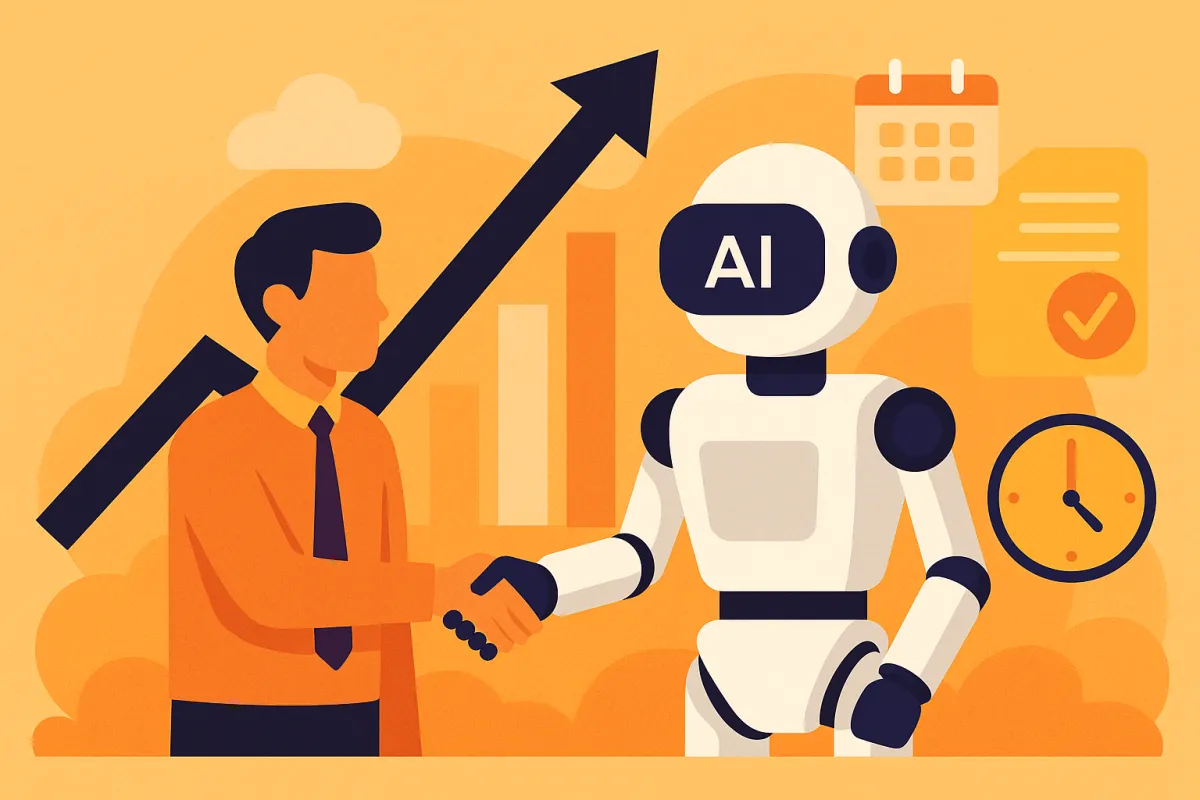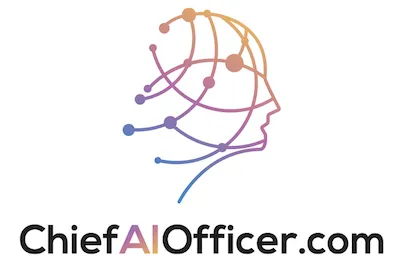
The AI Agent Transformation That Proves Most Companies Are Automating Wrong (And Losing Competitive Advantage)
The AI Agent Transformation That Proves Most Companies Are Automating Wrong (And Losing Competitive Advantage)
AI agents are rapidly transforming workflows across industries, shifting from science fiction to critical digital teammates that handle wide ranges of important tasks. Unlike traditional automation or simple chatbots, these agents are fully or semi-autonomous software systems that observe environments, make decisions, and independently take actions to achieve complex goals.
Gartner forecasts suggest 60% of enterprise workflows will involve AI agents by 2027, up from just 10% in 2023. Organizations using AI agents report order processing times dropping by 70% and compliance costs reducing by 45% through autonomous workflow management that traditional automation cannot achieve.
This isn't just workflow improvement. This is a blueprint for AI agent transformation that demonstrates how autonomous digital teammates create competitive advantages through intelligent action rather than simple task automation.
The 60% Enterprise Workflow Transformation
Gartner predicts 60% of enterprise workflows will involve AI agents by 2027, representing massive organizational transformation from human-dependent processes to AI-autonomous operations.
The transformation scale reveals how AI agents create enterprise capabilities that traditional automation cannot achieve through autonomous decision-making and adaptive workflow management.
Organizations that maintain traditional workflow approaches will find themselves operationally limited compared to AI agent-enhanced enterprises that achieve superior efficiency through autonomous intelligent action.
The 70% Order Processing Acceleration
AI agents reduce order processing times by 70% through autonomous workflow management that eliminates manual handoffs and human decision bottlenecks in complex business processes.
The acceleration achievement demonstrates how AI agents create operational efficiency that traditional process automation cannot match through end-to-end autonomous management and intelligent optimization.
Companies that rely on human-dependent order processing will find themselves speed-disadvantaged compared to AI agent operations that achieve superior throughput and accuracy.
The 45% Compliance Cost Reduction
AI agents reduce compliance costs by 45% through automated monitoring, verification, and reporting that eliminates manual compliance management while maintaining regulatory standards.
The cost reduction reveals how AI agents create compliance capabilities that traditional approaches cannot achieve through continuous automated oversight and intelligent exception handling.
Organizations that maintain manual compliance processes will find themselves cost-disadvantaged compared to AI agent systems that achieve superior compliance at lower operational expense.
The End-to-End Workflow Ownership
Modern AI agents orchestrate entire multi-step workflows from support ticket triage and email drafting to code generation, CI/CD pipeline monitoring, and compliance audits.
The ownership capability demonstrates how AI agents differ from traditional automation by managing complete workflow cycles rather than individual tasks or process steps.
Companies that use traditional automation for isolated tasks miss opportunities for comprehensive workflow transformation that AI agents provide through end-to-end autonomous management.
The Contextual Reasoning Intelligence
AI agents reason through real-time data and historical patterns, making context-aware decisions and adapting actions dynamically rather than following rigid scripts or predetermined rules.
The reasoning intelligence reveals how AI agents create decision-making capabilities that traditional robotic process automation cannot achieve through adaptive intelligence and contextual understanding.
Organizations that rely on rigid automation will find themselves adaptability-limited compared to AI agents that adjust operations based on changing conditions and context.
The Digital Teammate Evolution
AI agents function as critical digital teammates rather than simple tools, handling complex autonomous tasks while collaborating with human workers on strategic and creative activities.
The teammate evolution demonstrates how AI agents transform workforce dynamics by providing intelligent collaboration rather than just task automation or efficiency improvement.
Workforces that treat AI as tools rather than teammates will achieve limited transformation compared to organizations that integrate AI agents as collaborative autonomous partners.
The Administrative Revolution Impact
AI agents excel at high-volume repetitive processes including data collection, document verification, compliance checks, reporting, and internal communications, freeing skilled workers for decision-making and creative tasks.
The revolution impact reveals how AI agents create workforce optimization that traditional automation cannot achieve through comprehensive administrative task management and intelligent process handling.
Organizations that maintain manual administrative processes will find themselves productivity-limited compared to AI agent operations that eliminate routine work and optimize human focus.
The Seamless Integration Architecture
AI agents integrate with CRMs, ERPs, DevOps, and other platforms, acting as connective tissue between systems while reducing manual handoffs and data transfer requirements.
The integration architecture demonstrates how AI agents create system connectivity that traditional automation cannot provide through intelligent platform coordination and automated information flow.
Companies that maintain manual system integration will find themselves efficiency-limited compared to AI agent architectures that optimize cross-platform operations automatically.
The Predictive Maintenance Intelligence
Manufacturing AI agents analyze IoT sensor data to prevent equipment failures, cutting downtime in half through predictive analysis and autonomous maintenance scheduling.
The maintenance intelligence reveals how AI agents create operational capabilities that traditional monitoring cannot achieve through predictive analysis and autonomous response coordination.
Manufacturing operations that rely on reactive maintenance will find themselves downtime-challenged compared to AI agent systems that prevent failures through predictive intelligence.
The Code Generation Partnership
AI agents write, debug, and optimize code while working alongside engineers as "pair programmers," accelerating software development through intelligent autonomous assistance.
The partnership capability demonstrates how AI agents enhance rather than replace human expertise by providing intelligent collaboration that amplifies human capabilities.
Development teams that maintain traditional coding approaches will find themselves productivity-limited compared to AI agent partnerships that accelerate development through intelligent automation.
The Invisible Task Transformation
While public discussion focuses on creative AI, the most consequential shift happens in invisible administrative, operational, and analytical tasks that keep businesses running.
The transformation reveals how AI agent impact occurs through essential business processes rather than visible applications, creating competitive advantages through operational excellence.
Organizations that focus only on visible AI applications miss opportunities for fundamental operational transformation that AI agents provide through invisible process optimization.
The Delegation Philosophy Evolution
Sam Altman states: "The future of productivity isn't about doing more. It's about delegating better." AI agents enable strategic delegation of complex autonomous tasks rather than simple work acceleration.
The philosophy evolution demonstrates how AI agents change fundamental approaches to work organization and productivity optimization through intelligent task delegation rather than effort multiplication.
Organizations that approach AI through work acceleration miss opportunities for workflow transformation that intelligent delegation provides through autonomous task management.
The Inbox Management Automation
AI agents triage inboxes, schedule meetings, draft proposals, and escalate tickets autonomously before workers begin their day, providing proactive workflow management.
The management automation reveals how AI agents create productivity advantages that traditional email and calendar tools cannot achieve through autonomous intelligent task coordination.
Knowledge workers that maintain manual inbox management will find themselves organization-limited compared to AI agent systems that optimize daily workflow preparation.
The Research and Content Acceleration
In B2B and content creation, AI agents produce research summaries, draft content, prioritize leads, and personalize outreach, significantly accelerating output while maintaining quality standards.
The acceleration capability demonstrates how AI agents create content and research capabilities that traditional approaches cannot match through intelligent analysis and automated generation.
Content and research teams that maintain manual processes will find themselves output-limited compared to AI agent enhancement that achieves superior speed and quality.
The Market Growth Explosion
The AI agent market grows explosively, driven by demand for speed, accuracy, and reduced human intervention in business processes that require intelligent autonomous management.
The growth explosion reveals how market dynamics favor AI agent adoption when competitive advantage depends on operational efficiency and intelligent automation capabilities.
Companies that delay AI agent implementation will find themselves market-disadvantaged compared to early adopters that capture competitive advantages through autonomous workflow transformation.
The Competitive Necessity Reality
For workers in tech, administration, customer support, and business operations, adopting and collaborating with AI agents becomes necessity rather than advantage when maintaining competitive positioning.
The necessity reality demonstrates how AI agents transform from optional enhancement to essential requirement when market dynamics favor autonomous intelligent operation over manual processes.
Organizations that treat AI agents as optional will find themselves competitively vulnerable compared to companies that integrate AI agents as essential operational capabilities.
The Workforce Collaboration Model
AI agents don't simply replace human workers—they enable skilled professionals to focus on judgment, strategy, and complex problem-solving while handling routine intelligent tasks autonomously.
The collaboration model reveals how successful AI agent implementation enhances rather than threatens human capabilities by optimizing task allocation and workforce capability utilization.
Companies that view AI agents as replacement threat will achieve lower adoption compared to organizations that embrace AI agents as collaborative enhancement for human expertise.
The Strategic Implementation Framework
Organizations moving quickly to embrace AI agent tools recognize competitive advantages through operational transformation rather than incremental efficiency improvement.
The framework approach demonstrates how AI agent success requires strategic commitment to workflow transformation rather than tactical automation that doesn't affect competitive positioning.
Companies that implement AI agents tactically will achieve limited value compared to organizations that transform workflows strategically through comprehensive AI agent integration.
The Enterprise Readiness Assessment
Businesses hoping to stay competitive must evaluate their readiness for AI agent transformation across administrative, operational, and analytical functions that drive competitive advantage.
The readiness assessment reveals how AI agent preparation requires comprehensive organizational evaluation rather than departmental experimentation when achieving transformation success.
Organizations that approach AI agents through limited testing miss opportunities for enterprise transformation that comprehensive readiness assessment provides through systematic preparation.
The Innovation Leadership Position
Early AI agent adopters establish innovation leadership that influences industry standards and competitive requirements for autonomous workflow management.
The leadership position demonstrates how AI agent implementation creates market influence that extends beyond direct operational benefits to industry standard-setting and strategic partnership opportunities.
Companies that delay AI agent adoption will find themselves following rather than leading industry evolution while autonomous workflow pioneers establish dominant competitive positions.
The Future Workforce Reality
AI agent transformation establishes workforce reality where autonomous digital teammates become essential for competitive operations rather than optional enhancement tools.
The future reality reveals why AI agent implementation requires immediate strategic commitment rather than gradual evaluation that delays competitive advantage while AI agent leaders establish market dominance.
The choice facing every executive is whether to integrate AI agents as digital teammates or accept competitive disadvantage to organizations that transform workflows through autonomous intelligent collaboration.
The Executive Decision Framework
AI agent transformation provides decision framework that executives can use to evaluate their own workflow automation requirements and competitive positioning strategies.
The framework prioritizes autonomous workflow management over task automation, intelligent collaboration over simple efficiency, and strategic transformation over incremental improvement.
Organizations that apply comprehensive AI agent strategies will achieve competitive advantages while companies focused on traditional automation will struggle to compete with autonomous intelligent workflow management.
The evidence is compelling: AI agents will manage 60% of enterprise workflows by 2027 while delivering 70% order processing acceleration and 45% compliance cost reduction. The strategic choice facing every executive is whether to embrace AI agents as digital teammates or accept competitive disadvantage to organizations that transform workflows through autonomous intelligent collaboration and strategic task delegation.

